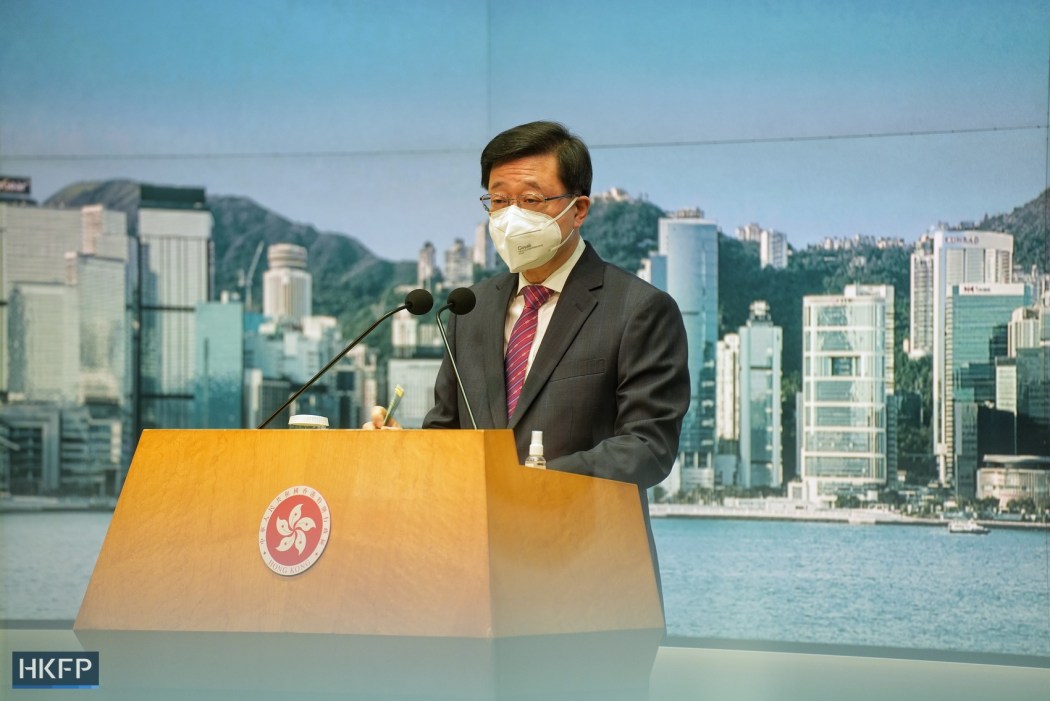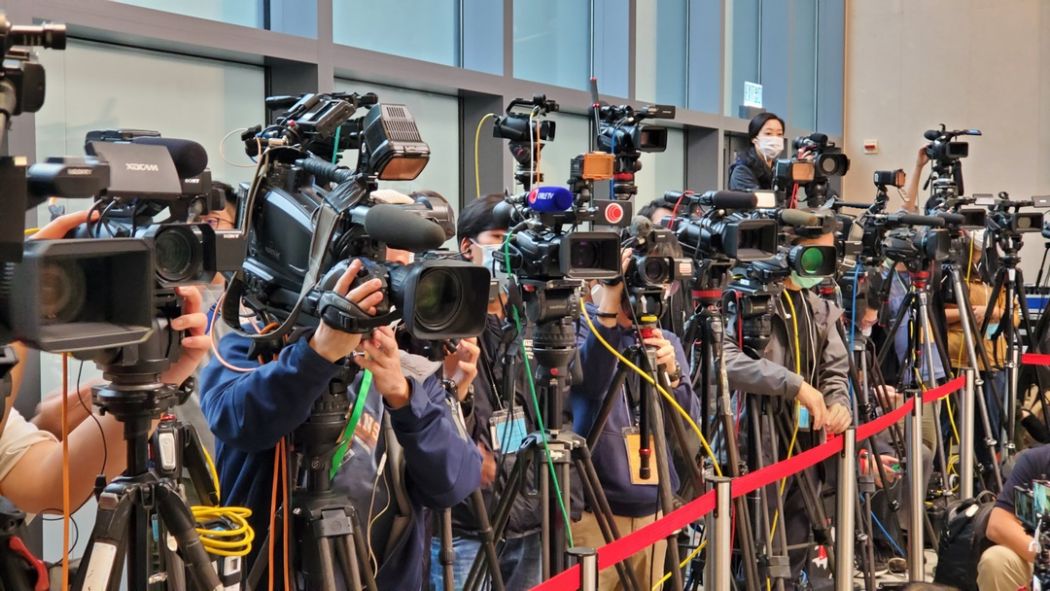Hong Kong’s Chief Executive John Lee has said there are people using journalism as a cover to pursue political aims, personal benefit, or “launder money” in the city.

The comment was made by the city’s leader and former security chief during an interview with state-backed newspaper Commercial Daily on Tuesday, when Lee said there were two layers to the issue of “fake news.”
The first was “harmful or false information,” Lee said, adding that he hoped this could be dealt with by self-regulation.
“If the industry is self-disciplined, and everyone produces their own operational guidelines and rules… that would be ideal,” Lee said.
The second kind of “fake news” was that which threatened national security, according to Lee.
He said while there have been “improvements in the media’s professionalism” since the implementation of the national security law, there were still some who worked under the guise of journalism to further their own aims.

“Some people are using journalistic work as a cover to do other things, including some with political objectives, or even personal aims… some fled the city after raising funds from the public, and cases of money laundering exist,” the chief executive added.
Lee did not provide any specific examples of such alleged activities.
Authorities are currently carrying out research for a proposed “fake news” law, with findings expected to be compiled by mid-2023.
Local security law
Lee also discussed the legislation of Article 23 – Hong Kong’s own security law.
“[I] hope the legislative work can be completed within this year, or next year at the latest,” he said.

Lee said the government already had a draft of the legislation, but added that he had requested the Security Bureau to prepare another after seeing “foreign forces continue with attempts to get involved or intervene with Hong Kong’s matters even after the conclusion of the black riots,” referring to the 2019 protests and unrest.
Lee said the second draft would focus on preventing “clandestine espionage activities,” block new methods of spying that arise from technological advancements, and plug loopholes introduced by new media. He did not specify how the law would legislate these areas.
In addition, the chief executive said there had been many “foreign agents” acting under the guise of different names, institutions or forums in Hong Kong.
“We have prosecuted many, while some closed down on their own and left immediately after, these are successful [examples].” Lee said.
He said the government’s next step would be to prevent foreign agents from entering the city in the first place, without specifying how he planned to do that.
Support HKFP | Policies & Ethics | Error/typo? | Contact Us | Newsletter | Transparency & Annual Report | Apps
Help safeguard press freedom & keep HKFP free for all readers by supporting our team
























